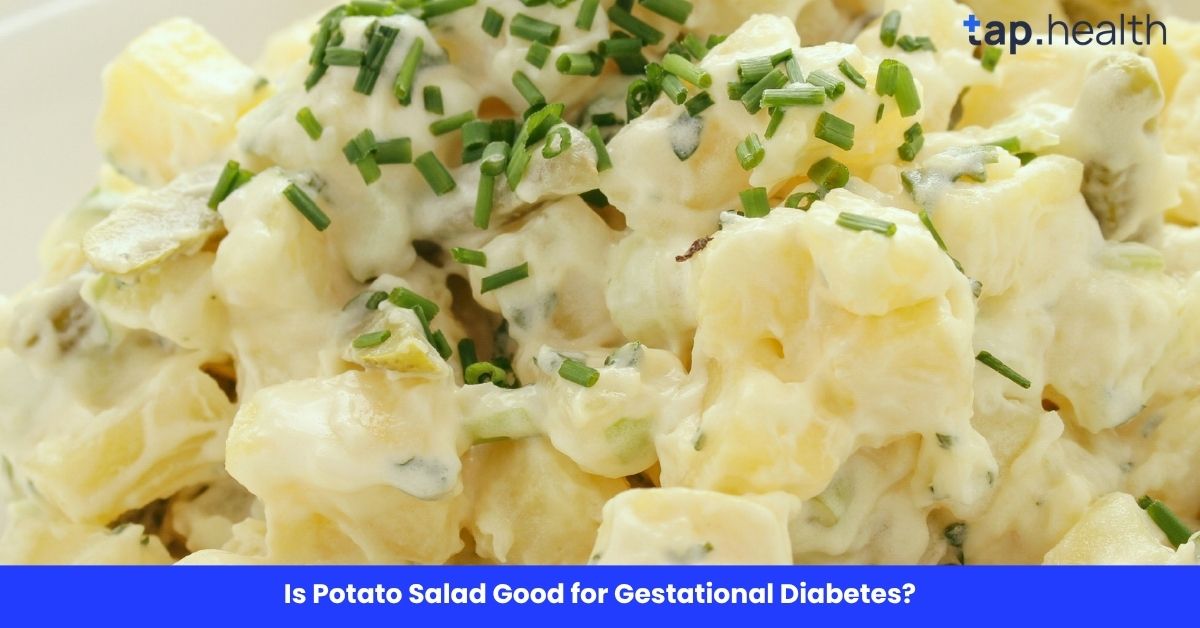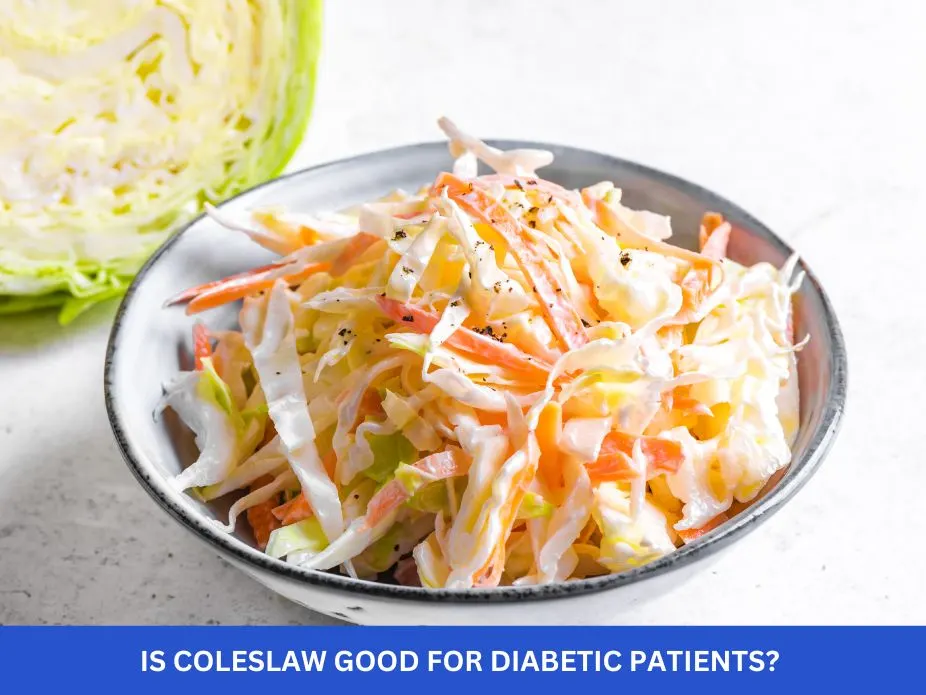Gestational diabetes is a condition that affects pregnant women and can impact their blood sugar levels. Managing gestational diabetes is crucial for both the mother and the baby, and diet plays a significant role in keeping blood sugar levels stable. One popular dish often debated in terms of suitability for gestational diabetes is potato salad. But, is potato salad good for gestational diabetes? Let’s dive deep into the subject and explore how potato salad affects blood sugar, the potential risks, and how you can modify the recipe to make it more suitable for those managing gestational diabetes.
What is Gestational Diabetes?
Before we delve into whether potato salad is good for gestational diabetes, let’s first understand what gestational diabetes is.
Gestational diabetes is a type of diabetes that develops during pregnancy. It occurs when the body cannot produce enough insulin to regulate blood sugar levels effectively. As a result, blood sugar levels rise, which can cause problems for both the mother and the baby. Typically, gestational diabetes develops in the second or third trimester and usually goes away after childbirth. However, it does increase the risk of developing type 2 diabetes later in life for both mother and child.
How Does Gestational Diabetes Affect Pregnancy?
Gestational diabetes can lead to several complications, including:
- Preterm Birth: High blood sugar can trigger early labor and delivery.
- Large Baby (Macrosomia): High blood sugar levels may cause the baby to grow larger than average, making delivery more complicated and increasing the risk of birth injuries.
- Low Blood Sugar in Newborns: Babies born to mothers with gestational diabetes may experience low blood sugar shortly after birth.
- Increased Risk of Type 2 Diabetes: Women who have had gestational diabetes are at a higher risk of developing type 2 diabetes later in life.
Maintaining balanced blood sugar levels through diet, exercise, and sometimes medication is essential for managing gestational diabetes.
Is Potato Salad Good for Gestational Diabetes?
Now, let’s address the main question: Is potato salad good for gestational diabetes?
The answer isn’t straightforward, as it depends on several factors, including how the potato salad is made and the individual’s overall health and blood sugar management. To understand this better, we need to look at the ingredients and how they can impact blood sugar levels.
1. Potatoes and Blood Sugar
Potatoes are a starchy vegetable that can cause a rapid spike in blood sugar when consumed alone. This is because they are high in carbohydrates, which break down into glucose (sugar) during digestion. The glycemic index (GI) of potatoes is relatively high, meaning they can cause a significant increase in blood sugar levels.
For someone with gestational diabetes, managing carbohydrate intake is crucial. High-carb foods like potatoes can lead to spikes in blood sugar. However, not all potato dishes are created equal. The type of potato, preparation method, and serving size can all influence how potatoes impact blood sugar.
Glycemic Index of Potatoes
The glycemic index measures how quickly a food raises blood sugar levels. Foods with a high GI, such as white potatoes, cause blood sugar to rise rapidly. On the other hand, low GI foods are digested and absorbed more slowly, causing a gradual increase in blood sugar.
- Boiled Potatoes: The GI of boiled potatoes can range from moderate to high, depending on the type of potato. For example, russet potatoes have a higher GI compared to red potatoes.
- Cold Potato Salad: Interestingly, the GI of potatoes can decrease when they are cooked and then cooled. This is because cooling potatoes allows them to form resistant starch, a type of fiber that is not digested in the small intestine and has a lower impact on blood sugar.
2. The Impact of Mayonnaise on Potato Salad
Traditional potato salad recipes typically use mayonnaise as a dressing. While mayonnaise itself doesn’t directly affect blood sugar, it does add a significant amount of calories and fat to the dish. If consumed in moderation, mayonnaise isn’t a problem for people with gestational diabetes. However, many store-bought mayonnaise brands contain added sugars and unhealthy fats, which can negatively affect overall health and blood sugar management.
3. Other Ingredients in Potato Salad
Potato salad recipes often include additional ingredients like eggs, mustard, vinegar, herbs, and vegetables. These ingredients generally have minimal impact on blood sugar levels and can even provide health benefits:
- Eggs: A good source of protein, eggs help stabilize blood sugar levels.
- Mustard and Vinegar: These ingredients have a low glycemic index and are often used to add flavor without raising blood sugar levels.
- Herbs and Vegetables: Adding fresh vegetables like celery, onions, or parsley can provide fiber and nutrients without significantly impacting blood sugar.
4. Portion Size and Frequency
While a small portion of potato salad may not cause significant spikes in blood sugar, large portions or frequent consumption could have an adverse effect. For those with gestational diabetes, it’s crucial to control portion sizes and not consume large servings of starchy foods like potatoes in a single meal.
How to Make Potato Salad Safer for Gestational Diabetes
If you enjoy potato salad and want to include it in your diet while managing gestational diabetes, there are several modifications you can make to the traditional recipe. These changes can help lower the glycemic index and make the dish more blood sugar-friendly.
1. Use Healthier Potatoes
Opt for potatoes with a lower glycemic index, such as red potatoes or sweet potatoes. These varieties are less likely to cause spikes in blood sugar compared to russet potatoes.
2. Boil and Cool the Potatoes
As mentioned earlier, cooling boiled potatoes increases the resistant starch content, which has a lower impact on blood sugar. Consider making your potato salad ahead of time and allowing it to chill in the fridge before eating.
3. Choose a Healthier Dressing
Instead of using regular mayonnaise, opt for a healthier dressing option:
- Greek Yogurt: Greek yogurt is a good source of protein and can replace mayonnaise for a creamier texture with fewer calories.
- Olive Oil and Vinegar: For a lighter, tangy dressing, use olive oil and vinegar instead of mayonnaise. This will help reduce calories and fats while still adding flavor.
4. Add More Vegetables
Incorporating additional vegetables into your potato salad can increase the fiber content, which helps slow down the digestion of carbohydrates and prevent spikes in blood sugar. Consider adding vegetables like cucumbers, peppers, or spinach.
5. Watch Your Portions
As with any food, moderation is key. Aim for a small portion of potato salad (about half a cup) as part of a balanced meal. Pair it with lean proteins, like grilled chicken or fish, and plenty of non-starchy vegetables to help balance your blood sugar levels.
Real-Life Scenario
A pregnant woman at a family gathering may crave potato salad on the buffet table. If she eats a large bowl made with mayonnaise and extra potatoes, her blood sugar could spike. But if she takes a small serving and pairs it with lean protein and fresh vegetables, she can enjoy the taste while keeping her glucose levels stable.
Expert Contribution
Dietitians often advise women with gestational diabetes to limit starchy foods like potatoes because they break down into sugar quickly. Experts suggest replacing part of the potato with sweet potatoes, beans, or non-starchy vegetables, which provide fiber and help slow down glucose absorption.
They also recommend checking blood sugar levels after meals to see how individual foods, like potato salad, affect the body since responses can vary.
Recommendations Grounded in Proven Research and Facts
- Choose small portions of potato salad to avoid blood sugar spikes.
- Add fiber-rich vegetables (spinach, cucumber, cabbage) to balance the carbs.
- Swap heavy dressings with Greek yogurt, lemon juice, or olive oil.
- Pair with protein like eggs, chicken, or fish to slow down sugar absorption.
- Prefer sweet potatoes over regular potatoes—they have a lower GI and are more nutrient-dense.
- Monitor blood sugar regularly after eating to understand personal tolerance.
FAQ: Is Potato Salad Good for Gestational Diabetes?
1. Can I eat potato salad if I have gestational diabetes?
Yes, you can eat potato salad if you have gestational diabetes, but you should make modifications to the traditional recipe. Use healthier potatoes, control portion sizes, and consider using a lighter dressing like Greek yogurt or olive oil.
2. What type of potatoes are best for gestational diabetes?
Red potatoes, sweet potatoes, and other low-GI potatoes are better choices for gestational diabetes. These potatoes have a lower glycemic index compared to white potatoes, meaning they have a smaller impact on blood sugar.
3. Can I eat potato salad every day if I have gestational diabetes?
It’s best to enjoy potato salad in moderation. Since potatoes can cause a rise in blood sugar, eating potato salad every day may not be ideal. Balance it with other low-carb, high-fiber foods.
4. How can I lower the glycemic index of potato salad?
You can lower the glycemic index of potato salad by boiling the potatoes and allowing them to cool before eating. Cooling potatoes increases the resistant starch content, which has a lower impact on blood sugar.
5. What are some healthy alternatives to mayonnaise in potato salad?
Instead of regular mayonnaise, use Greek yogurt, olive oil and vinegar, or a light mustard dressing to reduce calories and unhealthy fats while still enjoying the creamy texture.
Conclusion
Potato salad can be a part of a gestational diabetes-friendly diet when prepared mindfully. By choosing healthier potatoes, using lighter dressings, and moderating portion sizes, you can enjoy this classic dish without compromising your blood sugar control. As always, it’s essential to consult your healthcare provider or a registered dietitian for personalized advice on managing gestational diabetes and creating a meal plan that works for you.



